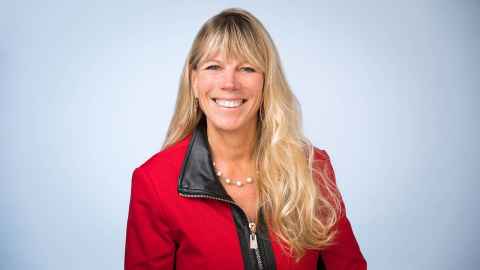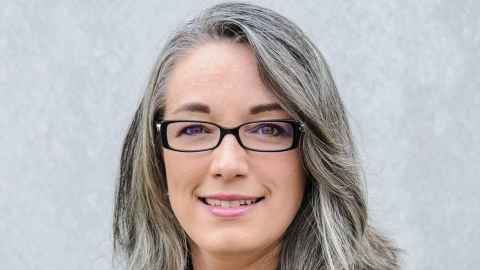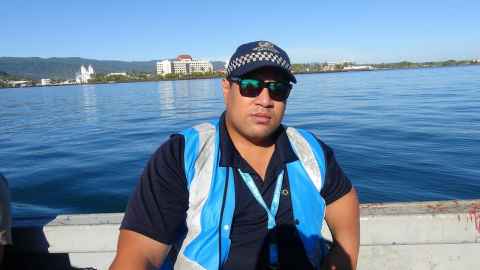Auckland alumni make their mark around the globe
31 May 2019
Three alumni living overseas tell us a bit of what they’re up to and where.

Cynthia Lund: Oregon
What did you study at the University of Auckland?
I was there 2005-09. I did a BSc and then a PhD in biological sciences. My thesis looked at New Zealand sauvignon blanc to determine whether it is distinctively different from other sauvignon blancs around the world. This was measured sensorily, chemically and having consumers blind taste and select New Zealand sauvignon blanc, based on preference. It also included training a sensory panel to perform to the best of their ability every time, in the same way athletes are expected to perform.
Did your study at Auckland ultimately influence your career path
Absolutely! It actually influenced being hired into my current position, which is technical sales of enzymes into the North American wine industry. Prior to my getting into technical sales (which I love), my degree led me to be the creative director at one of the world’s largest privately owned food companies. I developed a research platform for its flour division, which included collaboration with six countries
Where do you live and what are you doing?
Portland, Oregon, in the US. I sell ingredients into the wine industry, representing Novozyme enzymes, so I can apply my technical knowledge. Determining what the winemaker’s needs and priorities are allows me to recommend the optimum enzyme to use. I’m also planning to volunteer at the local university to help with graduate students’ sensory programmes.
Do you get back to New Zealand often?
I try to get back every other year. I keep in touch with several alumni, including Frank Benkwitz, who is director of laboratories at Constellation Brands in the South Island. While visiting Auckland, I also manage to go rowing with another Auckland alumnus, who now lectures there, as we belonged to the same rowing club while we were doing our PhD. We used rowing to clear our minds and to get a good workout while writing our dissertations!
Donna Rose Addis: Ottawa

What did you study at the University of Auckland?
I did a BA in psychology and history, 1996-98 and then an MA in psychology before doing post-doctoral overseas.
Did your study at Auckland influence your career path?
Absolutely. In particular, integrating arts and sciences into my BA was pivotal for developing my unique academic niche. As a history student, I examined identity in medieval and early modern Europe, while in psychology, I was fascinated with memory and amnesia. Bringing these seemingly disparate areas together, my MA research focused on how autobiographical memory – our personal history – provides us with a sense of identity, and how the loss of these memories in Alzheimer’s disease has huge ramifications for the sense of self. Associate Professor Lynette Tippett in psychology and Kim Phillips in history inspired me to follow an academic career path.
Was it hard to leave New Zealand?
After my PhD at the University of Toronto and a post-doctoral fellowship at Harvard, I came home to Auckland in 2008 to take up a lectureship in the School of Psychology. I spent a decade there and established my career and my place in New Zealand and on the world stage of cognitive neuroscience. I was lucky to have amazing colleagues, talented students and research fellows, in particular Dr Reece Roberts with whom I’ve collaborated for nine years. So, yes, it was difficult to leave my ‘science family’ as well as my family and my Pasifika roots.
Where do you live and what are you doing?
In 2018, I moved back to Toronto where I am a senior scientist at the Rotman Research Institute, Baycrest Health Sciences. In 2018, I was awarded a Canada 150 Research Chair, one of 24 positions created to bring the world’s top researchers to Canada during the year of the 150th anniversary of Canada’s confederation. This has been a huge opportunity for me to launch the next phase of my career – $4 million in funding over seven years and access to imaging technologies not yet in New Zealand, such as magnetoencephalography (MEG). I’m now a scientist in a geriatric hospital – I love it! I’m research-only, although will still supervise graduate students at the University of Toronto.
Do you get back home often?
I try to get to Auckland a few times a year, not only to visit my 102-year-old nana and my baby niece, but also because I have four PhD students and I’m still actively collaborating with Lynette and Reece in psychology. It’s great to have reasons to turn up to Psychology morning teas!
What’s the most exciting part of your work?
Toronto is an international hub for memory and neuroimaging research, so I have a lot on the go. That includes pinpointing ways in which imagination breaks down in ageing and depression. Eventually, we hope this work will lead us to interventions with the potential to enhance the ability to imagine, thereby improving wellbeing.
Kent Onesemo: Samoa

Kent Onesemo is a police officer in Samoa. He recently spent two years in Auckland completing his thesis about cannabis.
Tell us about your thesis.
The idea was to test the potency of cannabis collected from raids in New Zealand and compare it with cannabis grown in Samoa to see if there were differences in potency. We wanted to see whether we could differentiate between the two, based on their elemental profiles. It gave us an insight into the differences in tetrahydrocannabinol (THC) and cannabidiol (CBD) levels and potencies between Samoa and New Zealand.
Why is that useful to know?
The study, with the Institute of Environmental Science and Research, the New Zealand Police and Samoa Police, is useful because we looked at various regions where cannabis was grown. We focused on the elemental profiles to determine the different origins or locations of cultivated cannabis. It will also be useful for the medicinal cannabis industry, as it looks at varying THC and CBD levels in plants from different regions. A lot more study is required, but with the referendum in 2020 into legalising cannabis, this type of research can help the government make an informed decision to ensure safety if there’s regulated consumption of cannabis there.
You won a Faculty of Science Student Support Award to study in NZ. How was it?
I really threw myself into it. I take this approach with anything I want in life – opportunities don’t always present themselves, so when they do, you must give it everything, no matter how hard. I have a lot of family in New Zealand and during the two years I was there, I couldn’t go to see anyone or even attend church. I kept a strict diet and exercised regularly so I didn’t fall sick as that would have hindered my studies.
Do you miss Auckland?
The biggest thing I miss about Auckland is the weather. I enjoyed winter, because in Samoa it’s hot all year round. I miss the friends I made, too – such a great bunch of friendly people.
What’s the best part about life in Samoa?
Life in Samoa is really relaxed. I work from 8am to 5pm and then after that it’s mostly staying at home with the wife and three kids. Work takes a lot of my day, and sometimes nights, and also the nature of the job means anything can happen, so the best part is being able to go home to see my family. I missed the birth of my daughter and her first birthday while I was in New Zealand, so I have to make up for that.
What’s your motto for life?
Make something out of nothing. I didn’t have the best education growing up and my family struggled financially at times. I want the best for my kids, so I take every opportunity to progress in life. In the future, I want to relax and look down from the balcony of my house with a cup of coffee and say, “Well done, mate.”